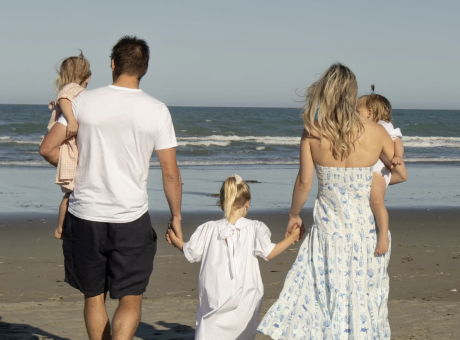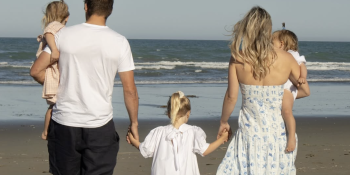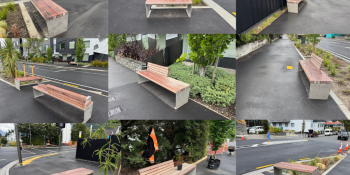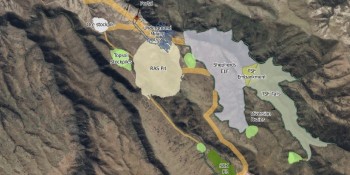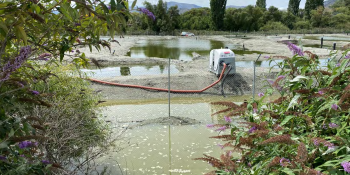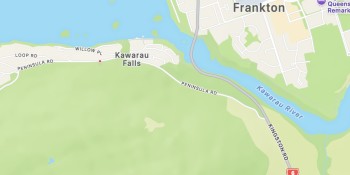Government's lifeline to growers
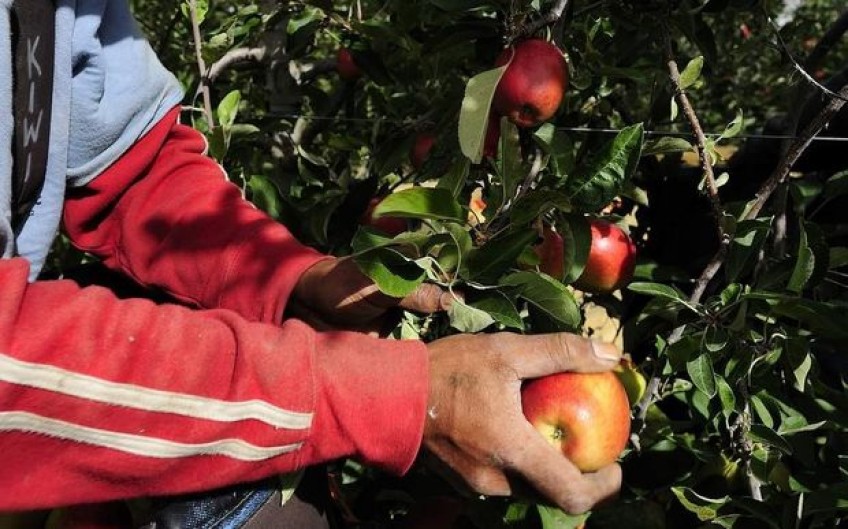
The Government has today made seasonal work on orchards and vineyards that much sweeter for Kiwis, promising to cover some accommodation costs, rain days and a bonus for jobseekers willing to stick it out for the long haul.
Plus, in the New Year, an additional 2,000 workers from the Pacific will be able to travel to New Zealand to address labour shortages in the horticulture and viticulture sectors.
The Ministry for Social Development and Employment (MSD) will now offer unemployed New Zealanders who take on seasonal work up to $200 per week for accommodation costs, wet weather payments that reflect minimum wage, and a $1000 incentive payment for workers who complete stints of work of six weeks or longer.

Minister for Social Development and Employment Carmel Sepuloni:'Getting New Zealanders into jobs is our top priority.'
In a media statement, Minister Carmel Sepuloni says she’s acutely aware of the increased numbers of Kiwis without jobs because of Covid-19 as well as the labour shortages in the primary sector with fewer overseas workers this season.
“Getting New Zealanders into jobs is our top priority and our changes will help address the barriers unemployed New Zealanders face when considering seasonal jobs, particularly relocation costs and unstable income.”
The $200 per week accommodation supplement will be paid for up to 13 weeks for unemployed Kiwis who move for seasonal jobs and still have accommodation costs at their primary residence.
“This acknowledges that people could be paying accommodation costs in two places.”
The $1000 incentive payment for employees that last six weeks or more in a job will be paid in two instalments – one halfway through their contract, and another at the end.
Anyone who moves off a benefit to take up a seasonal job will also have the security of guaranteed income the equivalent of minimum wage up to 40 hours a week, regardless of whether bad weather forces them off the job.
“These changes are part of the broader Government response to address labour shortages for our horticulture and wine growing industries, which are major export earners for New Zealand and will be important for our economic recovery from COVID-19.
“The Government is very aware of the need to balance the labour needs of the horticulture and wine growing industries as well as those of unemployed New Zealanders and we’re working with the sector to make sure the conditions are good and that Kiwis make up the workforce this season and beyond.”
The latest measures sit alongside incentives already put in place by the Government to offer additional financial security to unemployed New Zealanders willing to relocate for a job.
These include, in certain circumstances, a $5000 relocation grant, help with transport costs, clothing, training and pastoral care.
MSD staff are actively working in the regions to get jobseekers into seasonal roles.
Meanwhile, employers will cover the costs of managed isolation for the additional 2000 workers to be brought into the country from the Pacific under the Recognised Seasonal Employer (RSE) scheme.
There’s no option for RSE workers to placed in bespoke quarantine facilities arranged by the employer, either – they’ll be required to hole up at the same facilities as other returnees, with nurses, defence personnel and police to hand.
Employers will also have to ensure RSE workers are paid at least $22.10 an hour while on the job, plus the equivalent of 30 hours per week while in isolation.
Plus, countries sending RSE workers will need to have agreed repatriation plans.
The workers will arrive in staggered groups between January and March next year, to avoid peak holiday demand for managed isolation and quarantine facilities from New Zealanders wanting to return for Christmas.

Minister for Agriculture Damien O'Connor: 'The Government has listened to concerns raised by the sectors and understands their importance for our COVID economic recovery.'
In a statement, Minister of Agriculture Damien O’Connor says help is needed to ensure labour shortages do not threaten the upcoming season’s harvest.
“The Government has listened to concerns raised by the sectors and understands their importance for our COVID economic recovery. These changes will help support their ongoing success.
“Horticulture and wine are among our largest export industries, with total exports valued at $6.5 billion in the last financial year. They also employ around 38,300 New Zealanders, many in regional New Zealand. These seasonal workers will enable the work of these New Zealanders to continue.”
The minister says the border exemption for 2000 RSE workers is the single largest economic-based class border exception to date.
Earlier, the government allowed an exemption for up to 570 deep water fishing crew.
“In agreeing to this, the Government has also made clear its expectation to see industry initiatives which will attract New Zealanders into horticultural work.
“We know the industry is working to address barriers to employing more New Zealanders and we expect to see continued efforts to develop initiatives that will attract Kiwis into horticulture and wine sector work.
“The Government will also work with the sectors to ensure there is an industry-wide plan to make sure that the RSE workers being allowed in from January next year are fully employed and are cared for over the entire length of their contracts.”
Immigration Minister Kris Faafoi says the new RSE border exception will also help New Zealand’s Pacific Island neighbours whose economies have been hit hard by COVID-19, as their seasonal workers provide important remittances to their homelands.
The changes seek to strike a balance between protecting New Zealanders from the spread of Covid-19, ensuring supports are in place to bolster the country’s economic recovery and offering employment opportunities to Kiwis who have lost their jobs because of Covid-19, the minister says.
“We will continue to engage with the primary sector and others to see if and where adjustments might need to be made and can be made safely in the interests of New Zealand businesses and jobs.”
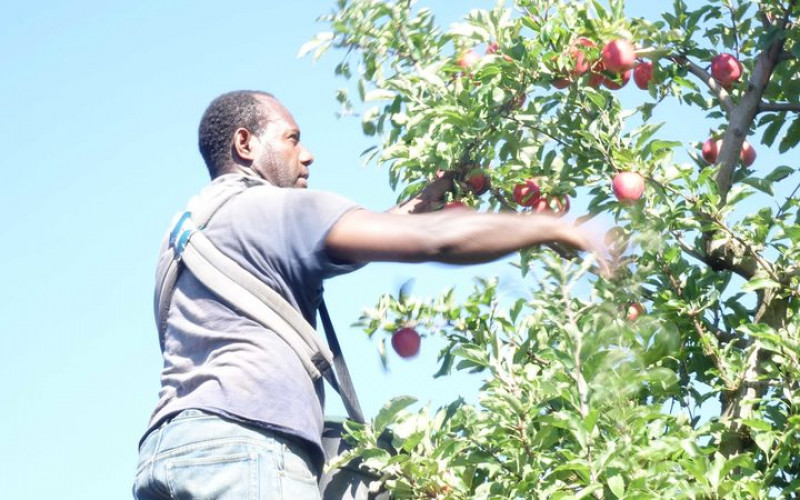
Immigration Minister Kris Faafoi says the new RSE border exception will also help New Zealand’s Pacific Island neighbours whose economies have been hit hard by COVID-19 (Photo: RNZ).
However, despite the 2000-strong injection of experienced workers, there will still be fewer seasonal workers available to the industry than in previous years, he says.
Each year up to 14,400 workers, mainly from Pacific Island nations, arrive in New Zealand to fill seasonal labour shortages in the horticulture and wine industries.
With many workers only staying for part of the season, the highest number of RSE workers in New Zealand was around 10,500 at the peak of last season.
There are approximately 6,000 RSE workers still in New Zealand from the 2019-2020 season – approximately 120 of them in Central Otago.
While some of these workers will choose to stay and continue working, others will want to go home.
Work the Seasons is a good way for both job seekers and employers to find jobs and list job vacancies. Accommodation listings will be added from 14 December, 2020.






